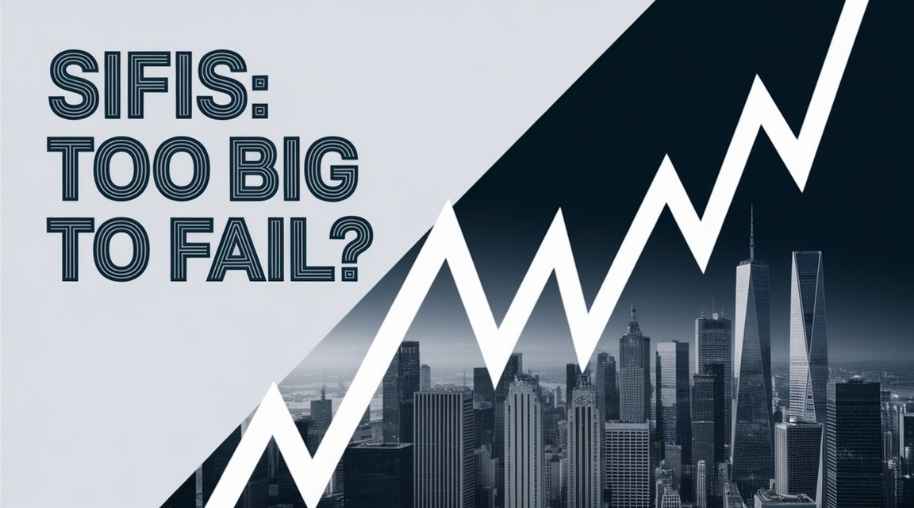SIFI Full Form-Systemically Important Financial Intermediary
by Shashi Gaherwar
0 2482
Systemically Important Financial Intermediaries (SIFIs): Role, Impact, and Regulatory Framework
Systemically Important Financial Intermediaries (SIFIs) play a crucial role in the stability of financial systems worldwide. These institutions are deemed “too big to fail†due to their size, market impact, and interconnectedness with the economy. If a SIFI collapses, it can trigger widespread economic disruptions, financial crises, and systemic risks. To mitigate such threats, central banks and regulatory bodies enforce strict oversight and capital requirements.

This article explores the concept of SIFIs, their classification, risks, regulatory measures, and their impact on global financial stability.
What is a Systemically Important Financial Intermediary (SIFI)?
A Systemically Important Financial Intermediary (SIFI) is a financial institution whose failure could severely impact the broader financial system and economy. These institutions include:
- Systemically Important Banks (SIBs): Banks with significant influence on financial stability.
- Systemically Important Insurers (SIIs): Large insurers impacting markets and policyholders.
- Non-Bank Financial Institutions (NBFIs): Investment funds, hedge funds, and similar entities.
- Investment Firms and Clearing Houses: Facilitators of major financial transactions.
The concept of SIFIs gained prominence after the 2008 Global Financial Crisis, highlighting the need for stronger oversight and risk management.
Characteristics of SIFIs
SIFIs are identified based on key criteria:
- Size: Large institutions with vast asset holdings.
- Interconnectedness: Strong links with other financial entities and markets.
- Complexity: Engaging in complex financial transactions and global operations.
- Substitutability: Limited alternatives if the institution fails, leading to economic disruptions.
- Leverage and Risk Exposure: High levels of debt and involvement in risky investments.
Types of Systemically Important Financial Intermediaries
SIFIs are categorized into several types based on their functions and impact:
- Global Systemically Important Banks (G-SIBs): Global banks like JPMorgan Chase, Bank of America, HSBC, Deutsche Bank, and Citigroup, operating across multiple countries.
- Domestic Systemically Important Banks (D-SIBs): Banks critical to a specific country’s financial stability, categorized by central banks.
- Systemically Important Insurers (SIIs): Large insurers like AIG, Allianz, and Prudential, impacting policyholders and markets.
- Non-Bank Financial Institutions (NBFIs): Investment funds, pension funds, hedge funds, and clearing corporations influencing market stability.
- Market Infrastructure Providers: Clearinghouses, payment systems, and central counterparties facilitating global transactions.
Risks Associated with SIFIs
SIFIs pose significant risks to the financial system:
- Too Big to Fail (TBTF) Risk: Their failure can cause widespread economic collapse, often requiring government bailouts.
- Moral Hazard: SIFIs may engage in high-risk activities, assuming government intervention will prevent failure.
- Contagion Effect: A SIFI collapse can trigger a domino effect, impacting other institutions and causing economic crises.
- Market Disruptions: Failure can lead to severe liquidity shortages and market instability.
- Regulatory Arbitrage: Exploiting loopholes in global regulations to maximize profits while increasing systemic risk.
Regulatory Framework for SIFIs
To mitigate SIFI risks, regulators have established strict frameworks:
- Basel III Regulations: Sets higher capital and liquidity requirements for SIFIs to ensure financial resilience.
- Financial Stability Board (FSB) Guidelines: Identifies and monitors global SIFIs, enforcing stricter risk management protocols.
- Dodd-Frank Act (USA): Introduces stress tests, capital buffers, and resolution plans to prevent financial crises.
- European Banking Authority (EBA) Regulations: Oversees risk management in European banks, ensuring compliance with financial stability norms.
- Reserve Bank of India (RBI) Guidelines: Classifies D-SIBs and enforces additional capital requirements for domestic banking stability.
Importance of Regulating SIFIs
Regulating SIFIs is critical for financial stability:
- Preventing Financial Crises: Reduces the risk of collapses like the 2008 crisis.
- Protecting Consumers and Investors: Safeguards depositors and investors from massive losses.
- Maintaining Market Confidence: Fosters trust and encourages economic growth.
- Minimizing Government Bailouts: Reduces reliance on taxpayer-funded rescues through capital adequacy.
- Promoting Sustainable Growth: Ensures responsible operations without excessive risk-taking.
Challenges in Regulating SIFIs
Regulating SIFIs presents several challenges:
- Cross-Border Regulatory Gaps: Global SIFIs operate in multiple jurisdictions, complicating uniform regulation.
- Enforcement of Compliance: Some institutions bypass strict regulations.
- Balancing Growth and Regulation: Overregulation may hinder financial innovation and growth.
- Shadow Banking Risks: Non-bank intermediaries may evade oversight, increasing systemic risk.
- Rapidly Changing Financial Landscape: Emerging technologies like cryptocurrency and fintech create new regulatory challenges.
Future of SIFIs and Financial Regulation
The financial sector is evolving, requiring dynamic regulatory strategies:
- Stronger Global Coordination: International cooperation to manage cross-border risks.
- Integration of Technology in Regulation (RegTech): AI and blockchain for financial monitoring and compliance.
- Increased Stress Testing and Risk Assessments: Advanced models to identify financial vulnerabilities.
- Expansion of Regulatory Scope: Inclusion of fintech firms, shadow banks, and cryptocurrency platforms.
Systemically Important Financial Intermediaries (SIFIs) play a vital role in the global economy but pose significant systemic risks. Effective regulation, risk management, and financial oversight are essential to ensure their stability and prevent economic crises. As financial markets evolve, regulators must adapt to emerging risks and maintain a balance between growth and financial security.
Further Learning Resources
If you’re passionate about building a successful blogging website, check out this helpful guide at Coding Tag – How to Start a Successful Blog. It offers practical steps and expert tips to kickstart your blogging journey!
For dedicated UPSC exam preparation, we highly recommend visiting www.iasmania.com. It offers well-structured resources, current affairs, and subject-wise notes tailored specifically for aspirants. Start your journey today!

Share:









Comments
Waiting for your comments